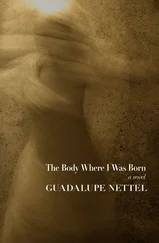Meanwhile the baby was floating in amniotic fluid inside my belly. At the last visit to the obstetrician we’d been told she was “engaged” and that was what I was feeling in my hips. Sometimes, in the silence of the afternoon, I’d hear my sacrum bones crunching. The thirty-fifth week had passed. It was a question of days. The more I thought about it, the greater was my need for everything to be in order in the apartment, and in truth, everything was except for the relationship between our pets. So I insisted on buying the fish tank that weekend. The home we picked out for our Bettas was a green aquarium that could hold up to ten liters of water, as the book recommended, tall but narrow at the base so it would fit on our bookcase. It was Vincent’s idea to put it there, where it would take up an entire shelf but not a single centimeter of living room surface space. We had to relocate several adaptations of The Civil Code for the Siamese fighting fish who had thus far, perhaps aware of our peacekeeping intentions, remained calm. In truth I did relax when, after several failed attempts and a technician’s visit, the fish were settled in and the female had, at last, a cave she could hide in.
Lila was born the same week, a few blocks from the apartment at the Clinique des Bleuets, one of the few public maternity wards that do water births. I remember Vincent’s horrified face when it was suggested to us. “How perfect,” he said, alluding to our pets. To me, however, it didn’t seem like such a bad idea. I’d heard many times that it’s less traumatic for babies to be born underwater than to enter the world on a hospital bed. I would have liked to try it. But opposing Vincent was the last thing I wanted to do right then. Lila came into the world at nine p.m. after eight hours of labor of which seven transpired in a generic hospital room that smelled of disinfectant. As I suffered the pains of contraction I tried to imagine that, instead of there, I was in the ocean in Brittany, and immense waves were pummeling my body. Later, when they took the baby away to run some tests and left me in the recovery room to rest, I overheard the nurses who had attended the birth talking. One said:
“Baby Chaix’s birth was fine but I couldn’t believe how tense her parents were. Just being with them was exhausting.”
It bothered me that they would talk about us like that, while I lay on a cot, naked beneath the sheets, separated from them only by a white curtain. However, beyond their indiscretion, their distanced discussion of the event interested me. After all, I thought, maybe they weren’t wrong.
During the pregnancy and, I believe, for my entire life, I had imagined those first days at home following the birth of a child to be the most romantic and marvelous days imaginable for a couple. And while I don’t know exactly what these days are generally like for everyone else, I can say that in my case, they were not like that at all. Adapting to the lack of sleep and the delicate task of taking care of a baby demanded nearly superhuman strength. Never before had I understood so clearly the importance of sleep, nor why prisoners who are to be interrogated are often tortured first by being denied it. It was hard for me to imagine people going through this generation after generation, as if being someone’s parent were the most obvious and logical thing in the world. My husband and I were both equally afraid of harming the baby. Bathing her, dressing her, cleaning her umbilical cord were feats that filled us with self-doubt. It seemed cruel to me to have her sleep in her own bed right away, after spending nine months attached to my body. But for Vincent it was a basic rule of survival. We tried both, but either way, waking up every two hours — that was how often she needed to be fed and changed — became unbearable. We were like two irritable zombies locked inside an apartment. We barely spoke during those days. We took turns sleeping and we always felt like the other one got more of it. I pushed myself to the ends of my limits, but it was never enough. My husband would indirectly accuse me of not taking care of the baby like an exemplary mother and I reproached him his recriminations. This whole time, he had been the one in charge of the fish tank.
Things got better when Vincent went back to work. True, I had to take care of the baby for the entire day, but I didn’t have to argue about whether she was crying because she was hungry or because she was cold. It wasn’t long before I found a rhythm, a routine that began with breastfeeding her in the morning, changing her diaper and often her clothes, walking her in the carriage if it wasn’t raining, more breastfeeding, some motor skill development exercises, bath, etc. True, Lila sometimes slept well, which I took advantage of to cook, wash clothes and dishes, tidy the apartment up a bit. But that’s not how it was most of the time. According to the pediatrician, she had terrible colic, and though normal for her age, it meant I’d have to comfort her somehow, by rocking her, singing to her, lulling her to sleep.
My husband usually came home during bath time. He would dry her, put her pajamas on, and get her ready for bed. After her last feeding he would try to get her to sleep. It took him hours; we ate dinner late and always exhausted. Neither of us had the energy for conversation. Once in a while I would make an effort, asking him questions about work or telling him something amusing I’d seen while out walking with Lila in the carriage. But it was useless. Vincent would just smile. And I won’t even go into sex. We’d had it maybe a couple of times since the birth, in a state of somnambulism. Like everyone, Vincent had his insecurities and one of them was about being a bad parent. I remember one time he was trying, in vain, to lull her to sleep, and I offered to take over. I only wanted for us to eat early and, for once, a meal that hadn’t gone cold. He took it as an insult.
“Now you’re going to tell me I do this badly too? You should learn to shut your mouth. I don’t waste my time pointing out your ineptitudes and countless mistakes.”
I tried to explain my point of view but it was no use. The discussion rapidly got more and more intense and didn’t end until my husband left, slamming the door. I was left rocking Lila, who that night took a little longer to fall asleep.
Many people came to visit us in that first month. Some of my friends and family members offered to stay with me a few hours while Vincent was at work. Most of them, however, showed up on weekends when they would find us both. It was a strange period in which we saw people we hadn’t in a long time. Everyone brought gifts for our daughter, clothes, toys, and new or used appliances they themselves hadn’t even bought and which they no longer needed. Neither my husband nor I dared refuse the gifts; neither of us knew where to put them. Lila’s closet was tiny. One Sunday morning Vincent announced we were not going to accept any visitors. While I understood the decision and deep down agreed with it, it bothered me that he decided for us both, and I told him so. We didn’t speak a word to each other the entire morning. In the afternoon Vincent, with the same despotism as earlier, worked on separating out the gifts he deemed useless. I remained locked in the bedroom with Lila under the pretext of taking a nap, and in those quiet moments I attentively observed the fish. How were they doing? What events had transpired in their subaquatic life while we were so busy with our own? They had remained calm all this time, or at least that’s the sense I got. If there had been some friction or fighting between them, it had gone unnoticed. I wondered if the female had been in heat again. I saw then such wisdom in nature: this animal was aware — god knows how — that it wasn’t a good idea to get pregnant, not even in a place as ample and well equipped as hers. I also wondered if it was the specimen with whom she shared it that deterred her or if under no circumstance, not even with a different mate, would she have agreed to procreate.
Читать дальше












